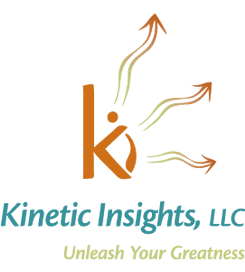Leaders often think a well-defined vision, a strong strategy, and a clear operational plan make up the formula that will fuel their team’s success. All too often, they overlook the fact that these great plans are carried out by people. And people are driven by relationships that are based on emotions and feelings.
There is truth to the saying “People don’t care how much you know until they know how much you care”. Strong relationships are the foundation of superior results, lasting success, and essential leadership
Do you know if you have strong relationships?
My clients routinely tell me that they have strong relationships with their direct reports and second-level reports. Some qualify this statement by saying that they like their people or their people like them. Others assure me that their direct reports understand what they need to do. Still others say their team members are all professional and friendly to each other. Do these perceptions really define a strong relationship? Do they effectively measure a work relationship when you need superior results?
Let me give you an example of one leader I worked with. He told me his relationships were good with his direct reports; they knew what he wanted them to do. Furthermore, when I interviewed those executives, they told me the boss was always clear on what he wanted. However, they also told me that they often felt that their job wasn’t secure, regardless of what they did. They clearly articulated that they each believed that boss’s communication style indicated that he did not care about them personally. Their interpretation from how he showed up was that their performance wasn’t good enough. They didn’t know whether he wanted them as part of his team.
These executives did not feel safe and did not feel there was a strong relationship of trust and value simply due to their boss’s communication skills. As a result, these same executives didn’t go the extra mile to get superior results for their leader’s vision. They did only what the boss told them to do and they each told the boss what they thought he wanted to hear. From their perspectives, they did this could keep their jobs.
First, connect as humans
Building strong relationships starts with connecting people as human beings first, then as co-workers and collaborators. Human beings build relationships on trust and safety, not on smiles and shared expectation. We each have emotions that need to be “tended” by both ourselves and the other person in any relationship. This is what helps us to feel safe and to build trust within that relationship.
Then, engage more of your senses and your brains…plural!
Tending emotions in a healthy business relationship means that leaders need to use more of their senses in addition to their brains. Clarifying your expectations or flashing a friendly smile is not enough to tend those emotions. Seeing someone nod their head doesn’t confirm emotional engagement.
We have five classical senses: vision, hearing, taste, smell, and touch. We also have three “brains” to process input from our five senses. These three brains are our head, our heart, and our gut. Each of these brains are really a system of sensory neurons, motor neurons, neurotransmitters, and ganglia. They receive and process information, store it, and access it again when we need it.
Each of your brains can sense, learn, remember, communicate, and change! When we are moving fast – maybe working in crisis mode or heavily focused on a goal — we often tune out some of the information coming from our senses and brains. When we slow ourselves down, we can access more of the input and analysis from our senses and brains. This is what we mean by being “present”. When we are present, we are more aware and able to process the clues that body and spoken language provide on validity and buy-in. Our heart and gut brains perceive things that the words and body language may not demonstrate.
Focus on these signals to build stronger relationships
Being intentionally present in a coaching engagement allows me to pick up important signals from my clients. These signals might indicate they are withholding something important. Maybe they do not truly believe what they are saying. Some signals can be as simple as a change in the pitch or cadence of their voice. If someone is speeding along, they might be rushing or trying to gloss over a key insight by telling me what they think I what I want to hear.
Everything I hear and see might be perfectly in sync with the conversation, and yet my gut says something is amiss. I often shock clients by asking what is behind their words. Sometimes, I can reference a specific point that isn’t quite connecting for me in their dialog. Many times, I simply ask them to slowly repeat what they just said. These tactics help generate a deeper conversation about something truly important to them but that may have been just outside of their awareness.
New awareness leads to stronger relationships
Let’s go back to the leader in my earlier example who had a disconnect in communication with his team. His trademark quiet demeanor was a very strong aspect of his authentic leadership style, especially in times of turmoil. It was his place of calm in the storm. He wasn’t comfortable being the charismatic leader; it didn’t fit him. However, he was also inadvertently wielding his quiet demeanor as a weapon. He wasn’t augmenting his quiet demeanor with other ways to show that he cared about his team members.
This particular leader needed to develop his own way of showing he cared. With this new awareness he committed to being more direct with his views on his executives’ performance and to be more curious about the executives’ perceived notions of their value to the organization. He had to use more of his senses to assess the relationship aspects with his team members. (Read more on this in another executive’s story here.)
Tactics for stronger relationships
As a tactical first step, this leader began to listen differently. He began to intentionally clarify what he heard and perceived to build safety and trust. He also asked more questions about his team members’ view of their successes and the obstacles to future successes. This helped to ensure they were all on the same page. With these small adjustments, he began to build trusted stronger relationships. The team members began to show a higher commitment to the superior results for the company.
As we go through the COVID-19 pandemic and begin to climb out of a coming recession, we know results are important. However, if we default to results being the ultimate goal and ignore the emotions and feeling that build strong relationships, we risk achieving the superior results we need.
Be present and make time to develop stronger relationships that allow people to know they are not just another number. Develop the ways you can show they are valued and important. You might be surprised at the re-invigorated drive to superior results or the increased flow of new ideas to generate results faster. This might just be your key to shortening the recovery and/or rebuilding of the organization’s business.











Leave A Comment